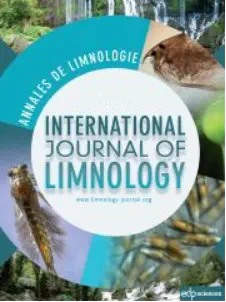Rapid decline of the greater European peaclam at the periphery of its distribution

Abstract
Extirpation or even extinction of freshwater invertebrate species is a neglected conservation issue; declines in abundance and spatial distribution for freshwater invertebrates are far less documented than for vertebrate species. In the Minho River tidal freshwater wetlands (northwest of Iberian Peninsula), a rapid decline in density and biomass of the bivalve Pisidium amnicum was recorded at 16 different sites over seven years, from 2004 to 2010, without any sign of a potential recovery. Mean density values reached more than 80 ind.m−2 in 2004, but declined to less than 1 ind.m−2 in 2009 and 2010. An identical declining trend was observed for biomass. A significant reduction in the spatial distribution also occurred. The abiotic changes resulting from the 2005 heat wave and possibly the negative interactions imposed by the non-indigenous invasive bivalve Corbicula fluminea were the main factors responsible for the declining trends. Given the very low density, P. amnicum is facing a serious risk of extirpation in this ecosystem and conservational measures are urgently needed.